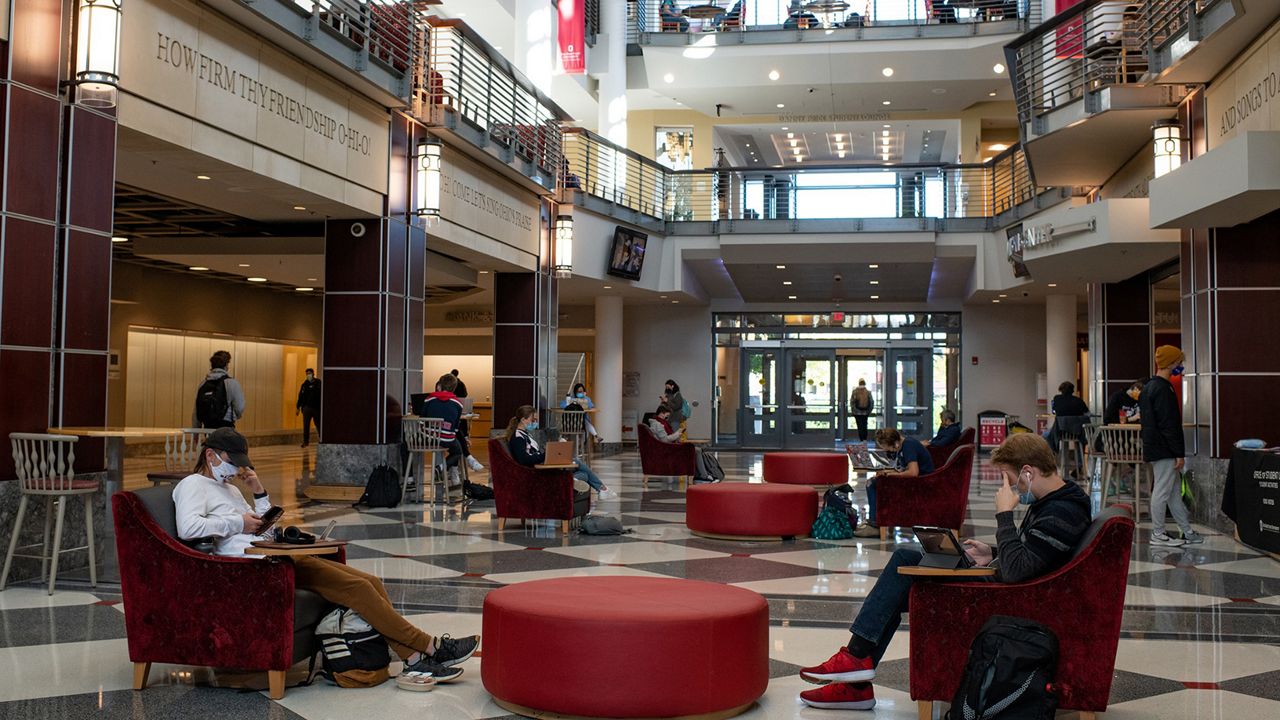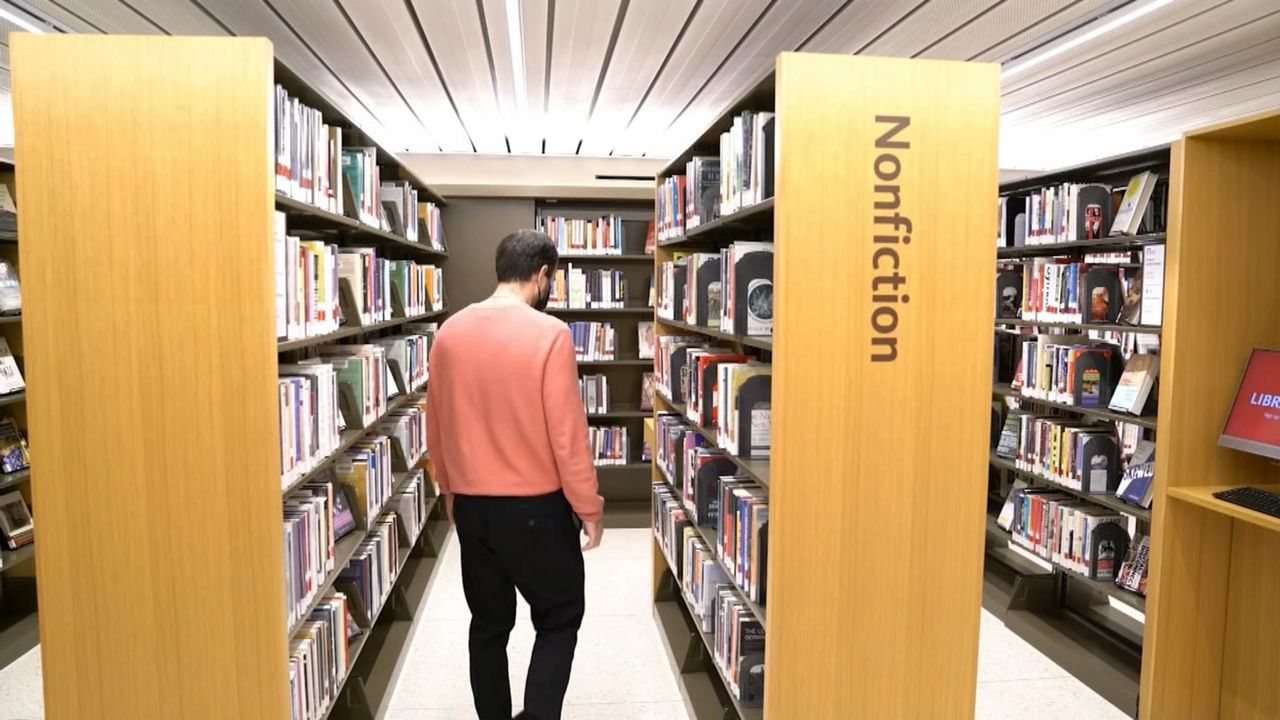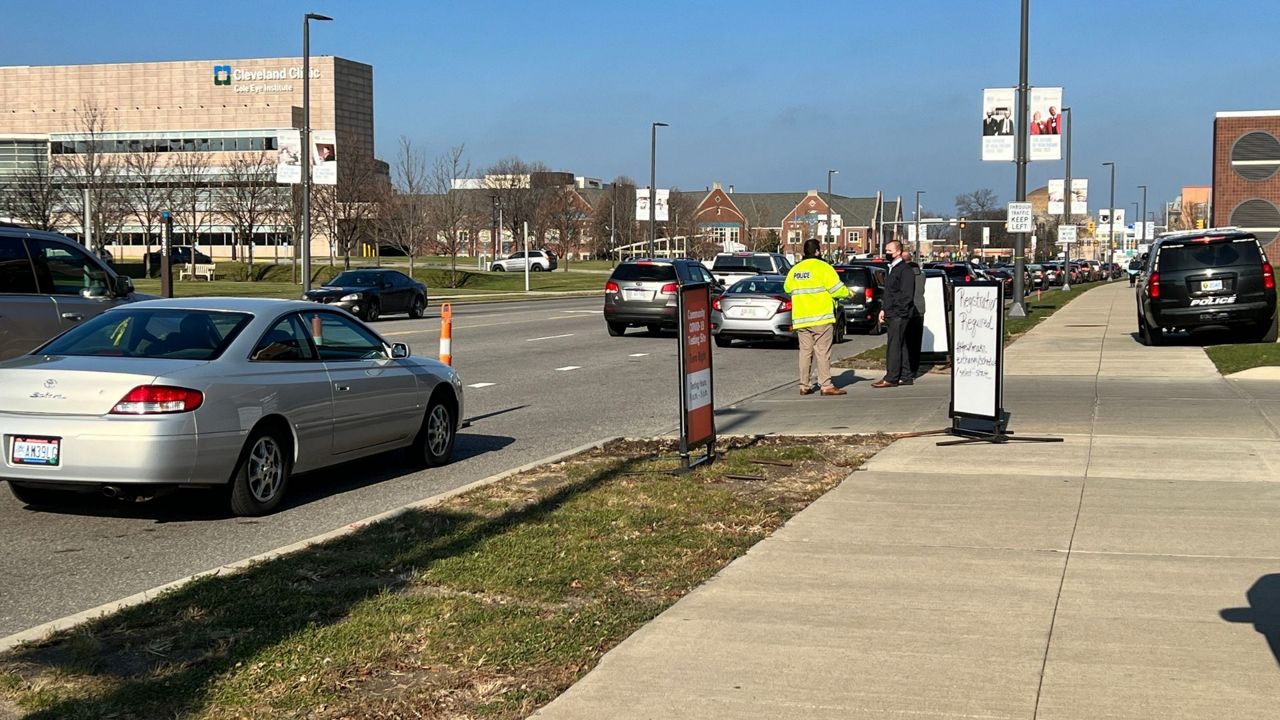COLUMBUS, Ohio — Ohio schools are reporting unprecedented COVID-19 case volumes as winter terms get underway, prompting some students and faculty to call for remote learning.
What You Need To Know
- COVID-19 cases are surging among college students in Ohio
- Some students and faculty are calling for remote learning
- Colleges update protocols for winter terms amid the virus wave
Ohio State and Ohio University have both reported more than 1,600 cases among students, according to updates this week. The universities are requiring surveillance testing for many of their students.
On Wednesday, Ohio State reported 1,822 positive PCR tests from students, faculty and staff out of 18,540 total tests conducted Jan. 10-14. Of those positive tests, 1,626 were from students, and the overall positivity rate was nearly 10%.
The Ohio State University Association of University Professors issued a statement prior to classes resuming last week, predicting that the university reopening campus for the semester amid the omicron wave would worsen the pandemic in the region and jeopardize the safety of the community.
In an interview Wednesday, Pranav Jani, english professor and president of the AAUP chapter, said it’s no surprise to see the high case numbers.
“Having a two-week delay, having a delayed opening, those kinds of measures could have been taken, recognizing that we are still vulnerable to this — the faculty being older and being connected to people who are immunocompromised,” he said.
Jani said Ohio State professors ought to have more of a say in how teaching is conducted during this period, and while he is hopeful that the university’s “gamble” to continue with in-person learning during the surge pays off, he said many faculty members and students are concerned.
“The quick transmission of this virus from person to person is something that is worrisome to many people who were really forced to take their classes in-person if that was the designation of the class,” he said.
Ohio State officials said it is important to prioritize in-person learning and emphasized requirements for vaccination, testing and masking. The universitty has asked that other events and gatherings take place virtually when possible. In a Jan. 14 update, Ohio State said it was dedicating a resident hall and spaces in local hotels for students who test positive.
“Given the current positive caseload, Ohio State is prioritizing the containment of positive cases,” school officials said. “The university has identified hundreds of on-campus configurations that will allow students to isolate, and in some cases, quarantine in their existing room assignment.”
Ohio University’s COVID-19 dashboard shows 1,663 Athens campus students have tested positive as a result of asymptomatic testing since Jan. 1. For the last week, the positivity rate is above 10%.
The university warned Tuesday that COVID-19 continues to “spread rapidly.” Students were urged to take precautions against the virus, including wearing a mask and avoiding large gatherings.
“Our goal is to keep going with as little disruption as possible. We want students in class and spending time with each other. Taking these actions for our own health and for the health of those around us allows us to stay in the classroom and learn together,” said Gillian Ice, special assistant to the president for public health operations.
Ohio schools have taken mixed approaches to winter restarts. Case Western Reserve University opted for two weeks of remote learning, and students were being tested several times during that period. Last week, the college reported 225 positive cases among students and a 5% positivity rate from surveillance testing.
The University of Cincinnati moved to online learning on Jan. 5, with plans to resume in-person learning on Jan. 24. This week, the university reported 338 positive tests and a positivity rate of 15%. The numbers were an improvement from the prior week when 35% of tests were positive.
At Kent State, in-person classes began Wednesday after a snow closure the day before, but some students are not onboard with the university’s restart.
Moira Armstrong, a senior majoring in english and history, criticized Kent State’s response to the virus surge during a virtual protest Tuesday evening organized by the Kent State COVID Coalition. The group is calling for two weeks of remote learning, among other demands.
“Even though the narrative has become that college students aren't high risk for COVID and aren't in danger, we don't think that that is the right thing to build policy around because it's not actually true,” Armstrong said, noting that students may be less comfortable with in-person learning based on health conditions, or living situations.
The university has yet to release its first COVID-19 case report in January.








